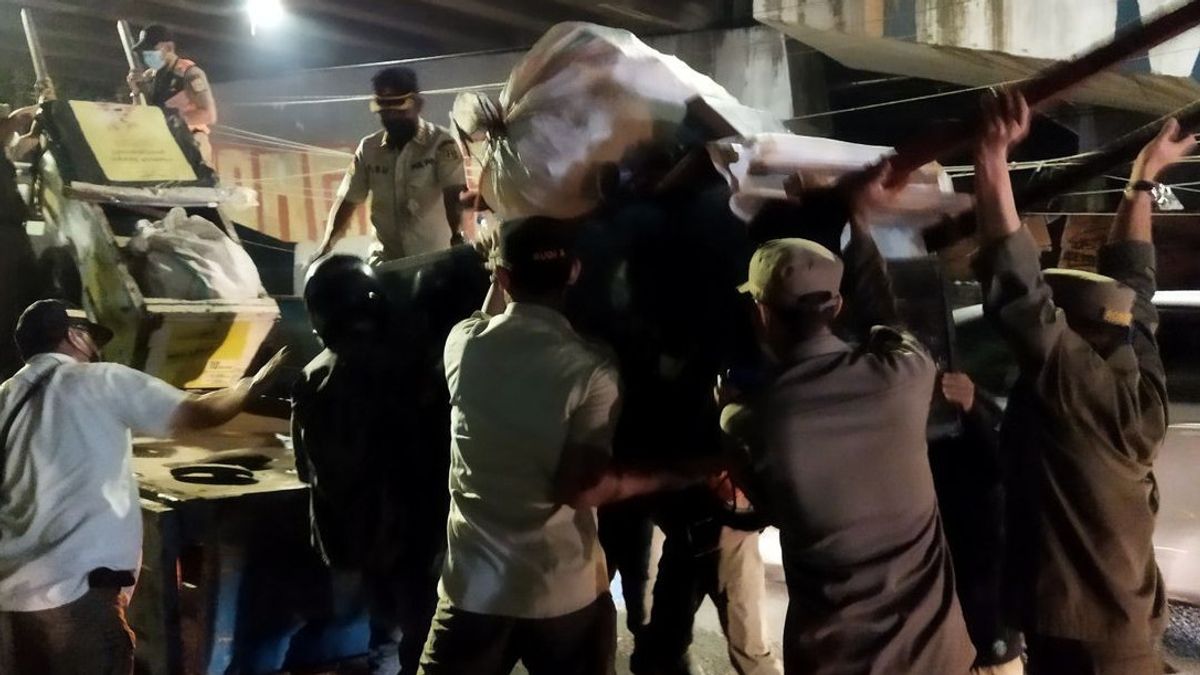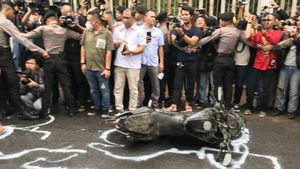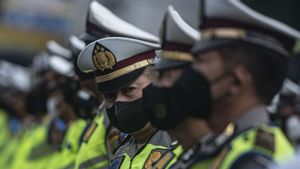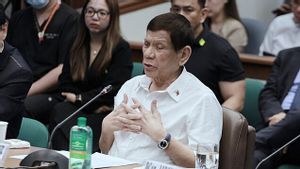JAKARTA – Providing educational security and social security assistance to the poor is a good step. However, according to the Advocacy Coordinator of the Urban Poor Consortium, Gugun Muhammad is not enough in an effort to eradicate poverty.
This is because the root of the problem of poverty lies in the structure. It's not about access to education and health, but about inequality in control of resources. So, if it really wants to raise the standard of living of the poor, the government must redistribute resources according to the needs of the local community.
“Such as poor farmers in the village. Health is guaranteed, but he does not have land for production because the existing land is already controlled by the company. In the end, he just worked as a farm laborer for a small daily wage. We will not escape poverty either," said Gugun to VOI on 6 February 2023.
The same goes for the poor in a city like Jakarta. They do receive assistance through the Jakarta Smart Card (KJP), cheap market operations, and even their health is guaranteed. But without a proper place to live, their condition will still be the same.
"The house was evicted to become a mall, it's difficult to do business on the side of the road. Lost all the means of production, in the end still poor too. Not to mention, people who live in gray areas. The condition is even sadder, it is difficult for the state aid budget and corporate CSR to enter," he said.

“So, I think the cards and social security are good, but only as a safeguard. If this is seen as an effort to alleviate poverty, I don't think it's enough,” Gugun added.
The redistribution of resources is absolute. Don't be completely controlled by the company. After that, it continues with job training, along with providing access to capital.
However, said Gugun, access to capital is only for groups, not individuals. So that later they can collaborate instead of compete.
"The Rp. 500 trillion poverty alleviation fund should target these things, no longer providing assistance in charitable forms that only end one expenditure. Don't just spend on personnel expenses, meetings, comparative studies, official trips. The portion that goes down to the community must be bigger, so that the impact is more pronounced," he said.
Then related to social institutions. This, continued Gugun, also must receive improvement. The current condition of social institutions is like a prison. There are no buskers, beggars, or cart people who want to enter social institutions because their lives will be more confined in the institution.

“I have handled people in social institutions several times. Life is the same as in prison, there is a schedule for making crafts, a schedule for learning to cook, but they cannot freely choose. It's hard to earn money in the orphanage. If they want to get out quickly, they have to pay for it," said Gugun.
"Please check directly, I'm not making this up. That's why scavengers or cart people in Jakarta, they go out past midnight so they don't get caught by the Satpol PP," said Gugun reassuringly.
That is why, if social institutions want to become a forum for alleviating poverty, the format of social institutions must be changed 100 percent. The format, according to Gugun, could adopt the concept of a work training center.
“People come voluntarily, they don't have to stay. They can also choose what skills are suitable for them, “he said.
Thematic Bureaucratic Reform
Minister of State Apparatus Empowerment and Bureaucratic Reform (PANRB) Abdullah Azwar Anas acknowledged that the poverty alleviation program that is currently running has not had an optimal impact on the poor.
There are still agencies in a number of regions that spend poverty alleviation funds not on target. Such as for business trips, meetings, seminars, and comparative studies.
"For example, the goal is to preserve rivers, but activities in the regions are seminars on river revitalization. Not that the seminar is not important, but it would be nice to use it for concrete things, such as buying tree seeds to plant in areas around rivers or other things," explained Azwar Anas as quoted from the official website of the Ministry of PANRB.

To overcome this, Azwar Anas has prepared a thematic bureaucratic reform program for poverty alleviation as support for strengthening bureaucratic governance.
The program outlines aspects of poverty alleviation governance through improving business processes, improving data, improving regulations/policies, reformulating programs/activities so that they are more on target. Also providing IT support through the Electronic Based Government System/SPBE, and so on.
So that later, the official travel budget can be reduced. Everything, said Azwar Ana, via online.
“Regional governments do not need to go to Jakarta. It is better if the budget is diverted to increase the allocation for empowerment which will directly impact the community," said the Minister who was once the Regent of Banyuwangi.
"Our target is that the poverty rate can fall to 7 percent in 2024. BPS data as of September 2022, Indonesia's poverty is 9.57 percent. This means that in the next two years, we must reduce poverty by at least 1.2 percent per year. This is not an easy task," said Azwar Anas.

The redistribution of resources is absolutely essential to alleviating poverty, not entirely controlled by companies. (Antara/Ali Khomeini)
Apart from these steps, according to Public Policy Observer Agus Pambagio, the most important thing in alleviating poverty is to revolutionize the mentality.
“As long as we still have a destructive mentality, the results will not be significant. Our mentality is a broker, mental stealing. The rations for the poor are being manipulated, the holy book is also being lied to, so it's not effective," said Agus to VOI on 6 February 2023.
SEE ALSO:
The English, Chinese, Japanese, Arabic, and French versions are automatically generated by the AI. So there may still be inaccuracies in translating, please always see Indonesian as our main language. (system supported by DigitalSiber.id)


















